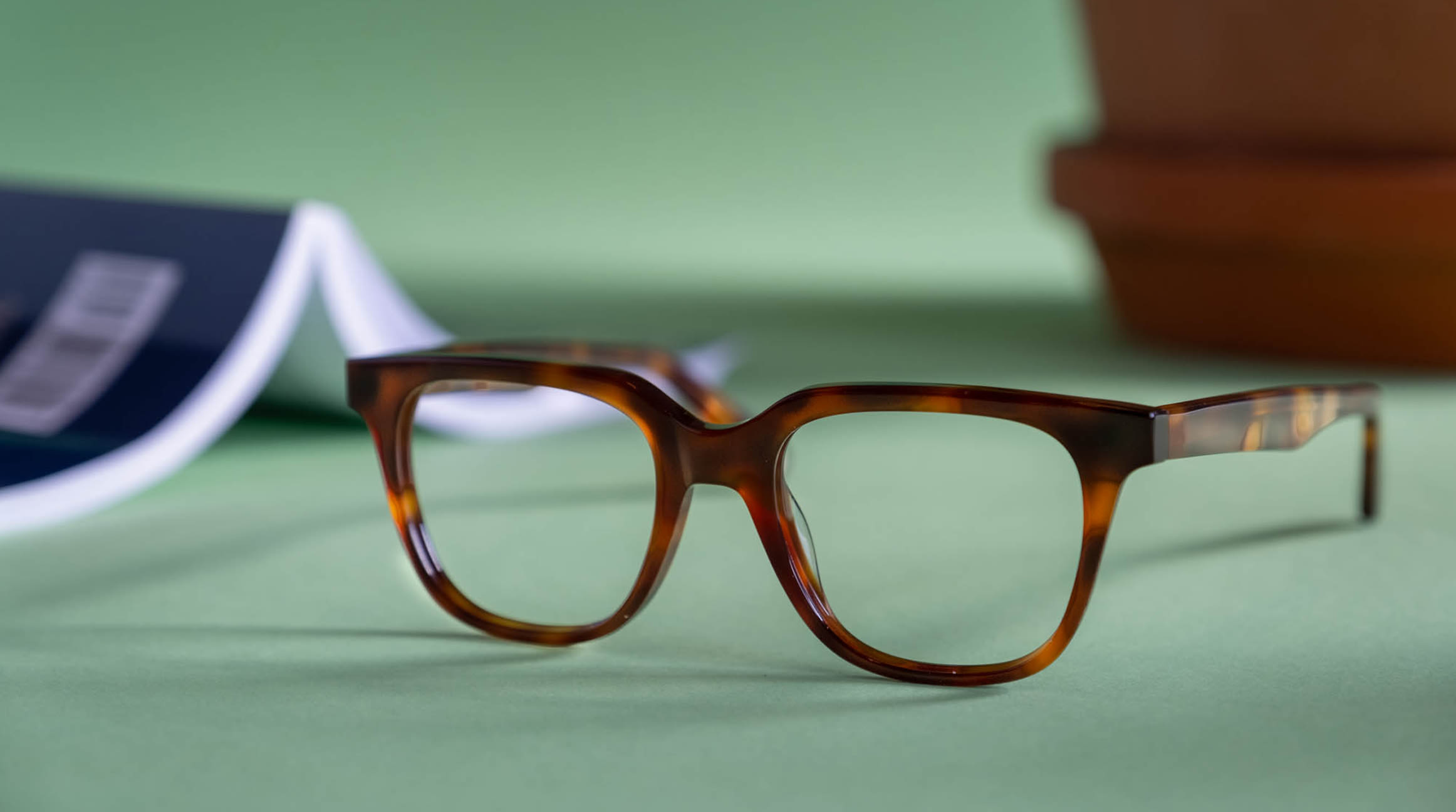Can dry eyes cause blurry vision?

Dry eyes can be uncomfortable, itchy, and painful, but when accompanied by blurry vision, things can get even more complicated.
According to the National Eye Institute, chronic dry eye is a surprisingly common eye condition that affects millions of Americans annually.
Dry eye disease is a condition that occurs when your tears aren't able to provide enough lubrication for your eyes. The causes of inadequate tear production can vary greatly—unfortunately, there isn't a one-size-fits-all solution. Therefore getting a diagnosis by your optometrist for your dry eyes and blurred vision is essential to finding an effective solution.
Side Note: If you require a doctor, Hubble can help. Give our find-a-doctor portal a go and find a Hubble participation doctor near you today.
Understanding some of the causes associated with dry eyes and blurry vision can aid you in finding the best solution to alleviate your symptoms.
Causes and symptoms of dry eyes and blurry vision:
Dry eyes and blurry vision are common symptoms of a condition referred to as Dry Eye Syndrome–causes can vary greatly.
Some causes inducing Dry Eye Syndrome:
- Vitamin A deficiency
- Tears dry up too quickly to keep your eyes sufficiently lubricated
- Dehydration
- Excessive screen time
- Certain medications
- Wearing the wrong contact lenses, leaving contacts in too long, or not adhering to proper contact lens upkeep and hygiene
Symptoms experienced from dry eyes can also vary greatly. In addition, symptoms usually affect both eyes, and you may experience more than one symptom at once.
Some symptoms you may experience:
- A feeling that something is stuck in your eye
- Difficulty driving and operating machinery
- Red eyes
- Eye fatigue
- Sensitivity to light
- Stinging, burning, or scratchy sensations in your eyes
- Watery eyes—how the body responds to the inflammation from dry eyes
- Difficulty wearing contact lenses
How to manage and help prevent dry, blurry eyes:
If you’re experiencing consistent dry eyes, it's vital that you see your optometrist and follow their instructions closely to prevent further discomfort.
Depending on the causes and symptoms behind your dry eyes and blurry vision, your doctor may advise different alternatives to bring you much-needed relief.
Your doctor may recommend any or some of the following:
Eye Drops:
The most commonly used solution to combat eye dryness and blurred vision is eye drops. If you've already tried over-the-counter artificial tears—eye drops, your doctor may recommend a prescription-strength eye drop.
Supplements and Diet Changes:
Another potential culprit behind your frequent dry eyes and blurry vision may be a lack of Vitamin A. Increasing your Vitamin A intake through supplements and food could make a substantial difference. You may also want to include Omega 3 Fatty Acids. These options may help with eye inflammation and better your overall eye health.
Changes to your lifestyle:
The solution to your problem may be as simple as making a few changes to your day-to-day- life. Things like hydrating regularly, reducing screen time when possible, and avoiding smoking and vaping may make a substantial difference for your vision and overall health.
Switching your current contact lenses:
Contact lens wearers are no strangers to dry eyes. Depending on the reasons behind your dry and blurry eyes, your optometrist may recommend you try different contact lenses to alleviate or hopefully end your discomfort.
If you're unsure which lenses would be best, consider that most optometrists believe daily disposable contacts to be the safest mode of contact lens wear. One-a-day lenses, if worn properly, diminish protein build-up that can lead to dry eyes and eventually blurry vision.
Speak with your doctor to determine if daily disposable contact lenses are the right choice for you.
Other helpful tips to aid in preventing dry, blurry vision:
- Wear sunglasses or UV-protection contact lenses.
- Avoid dry or smoky environments.
- Avoid direct air blowing on your eyes, such as that from air conditioners, car heating/cooling vents, fans, and blow dryers.
- Use blue light glasses or limit screen time.
- Use a humidifier.
- Follow proper contact lens care and hygiene practices.
Is it time to make the switch to daily disposable contact lenses?
If you have the all-clear from your optometrist to switch to one-a-day lenses, it's a great time to check out Hubble's daily disposable contacts.
Hubble's daily disposable contact lenses provide all-day comfort, crystal clear vision, are thoughtfully and precisely manufactured, FDA approved, and undeniably affordable.
At Hubble, we believe you should never have to choose between your wallet and your vision—get started with Hubble today for $1 and see firsthand why our customers love Hubble Contacts, but don't take our word for it.
Charlie K. says, "OMG when I put them on, I was extremely impressed. I am in love; I can not even remotely tell they are in. I will be a forever subscriber. Thank you, Hubble!"
Carrie D. says, "I absolutely love the contacts. They are very comfortable and moist all day. I will definitely keep them coming. Thank you, Hubble!"
The best part is our easy-to-manage subscription service that will never leave you waiting on your next shipment of lenses.
Helpful Tip: If you're not sure how to set up or access your customer portal to manage your subscription, we're here to help! Check out this post for more information, New Year, New Hubble. As always, if you have any questions or concerns, jump on our chat portal, and one of our friendly customer service reps will be happy to help.
Side Note: If Hubble's one-a-day lenses don't cover the prescription you need, check out our sister-site ContactsCart for other daily disposable lenses at affordable prices.



